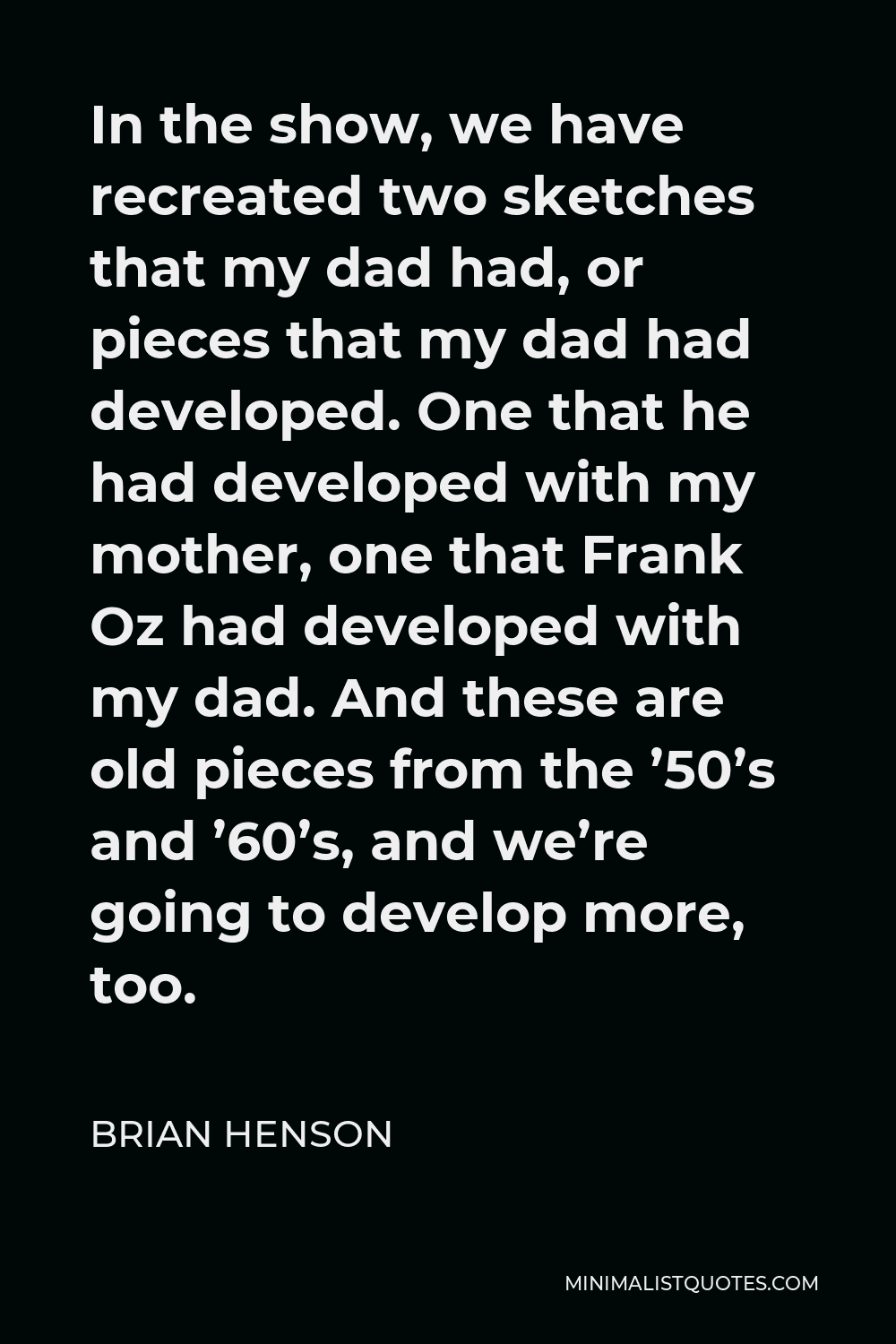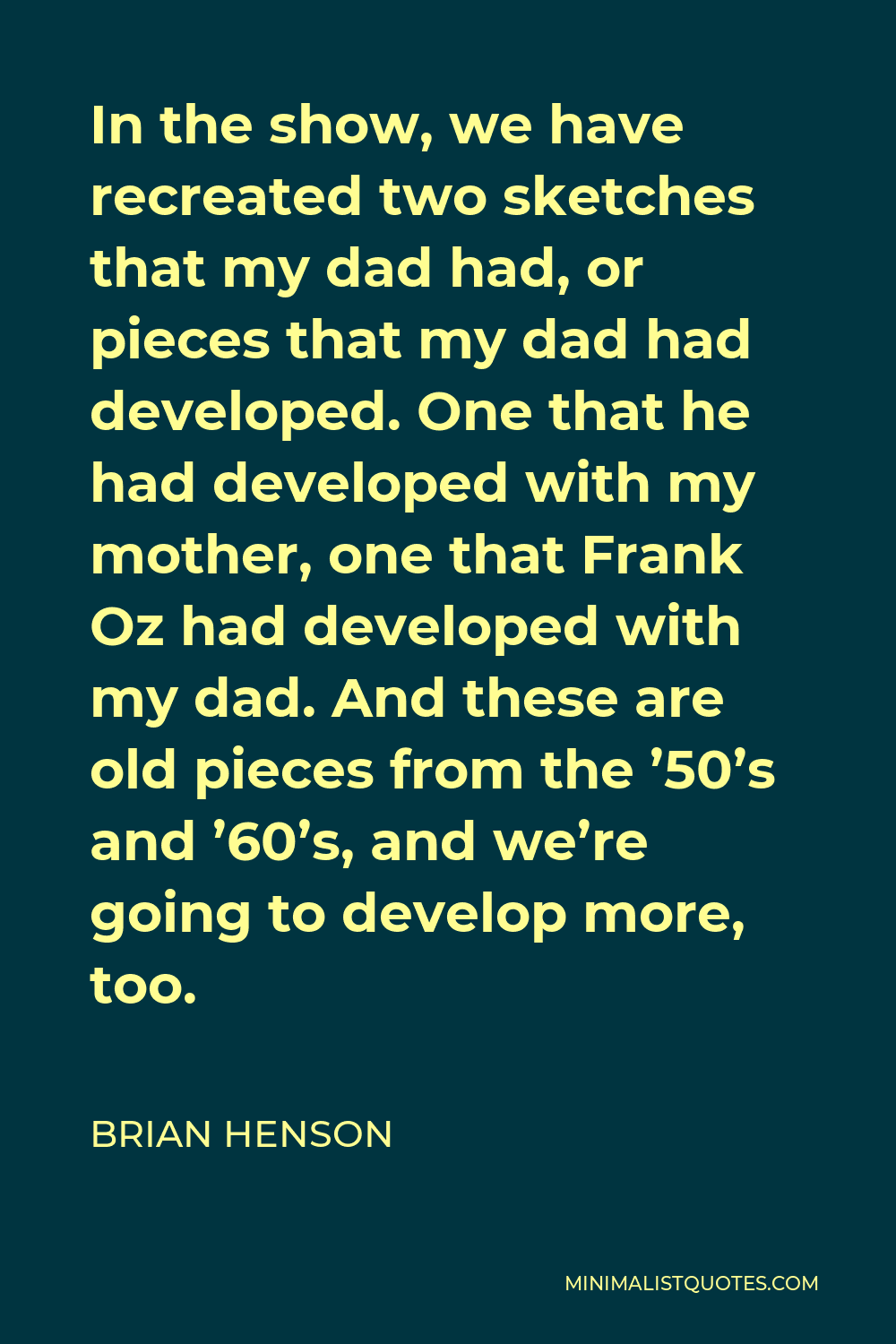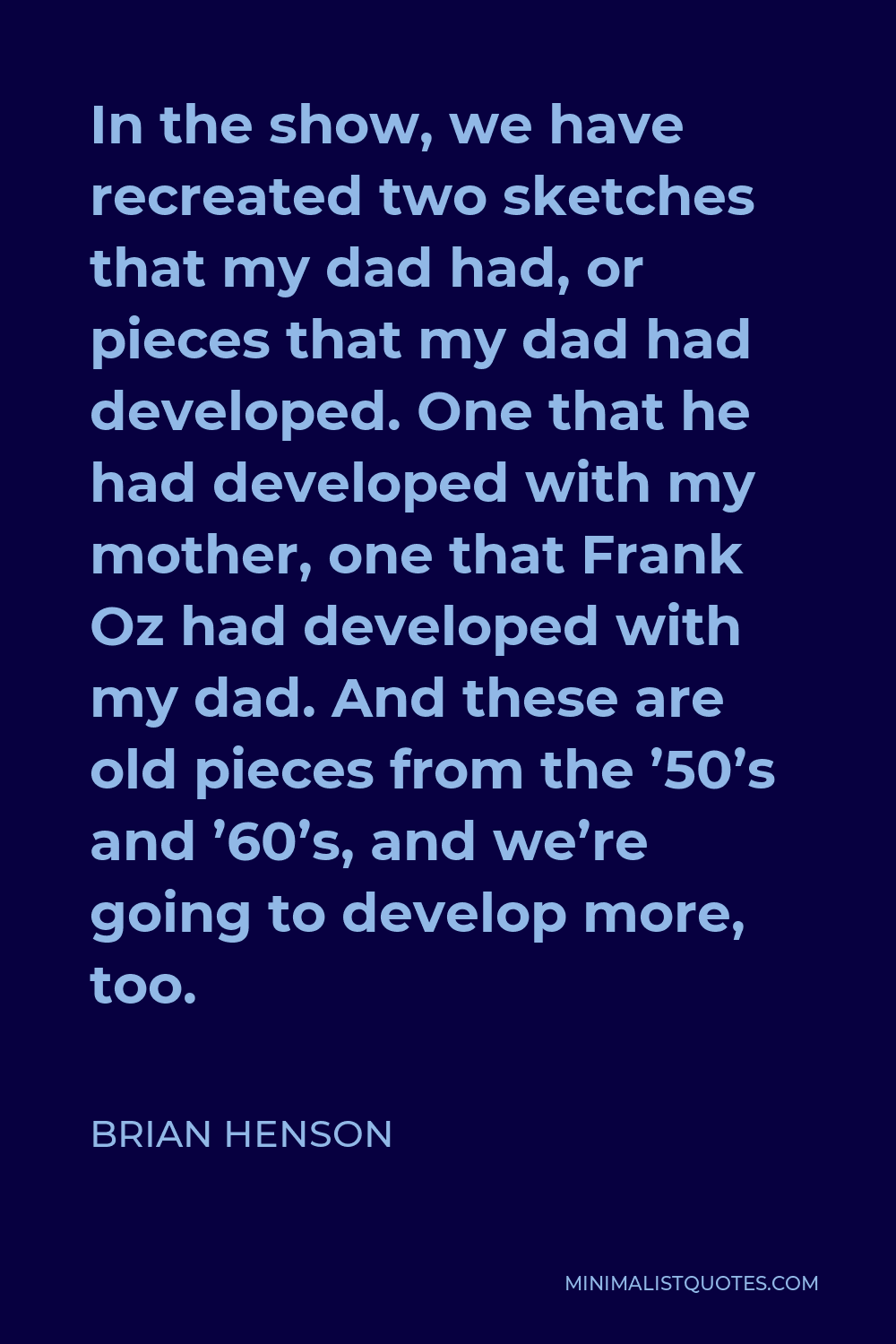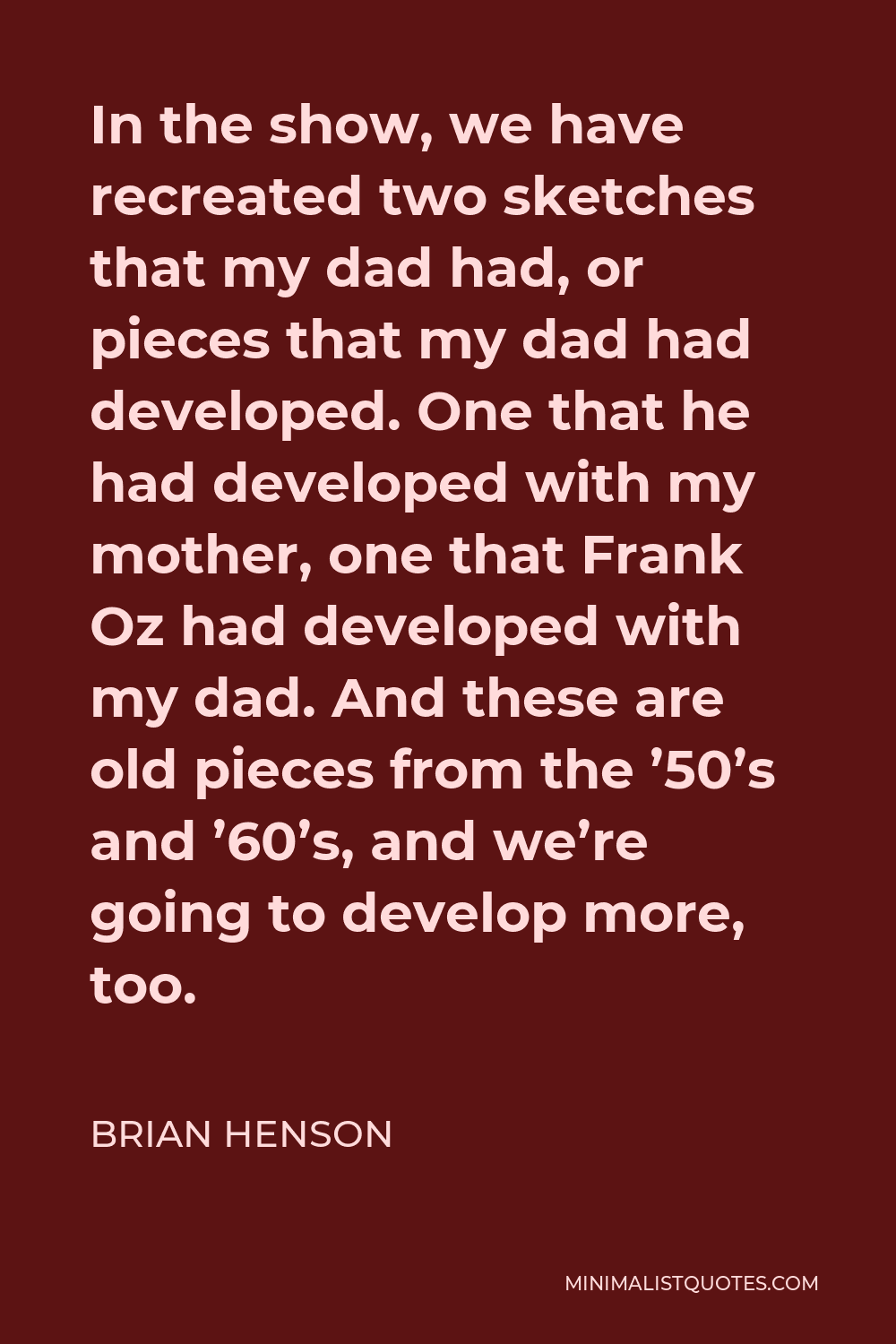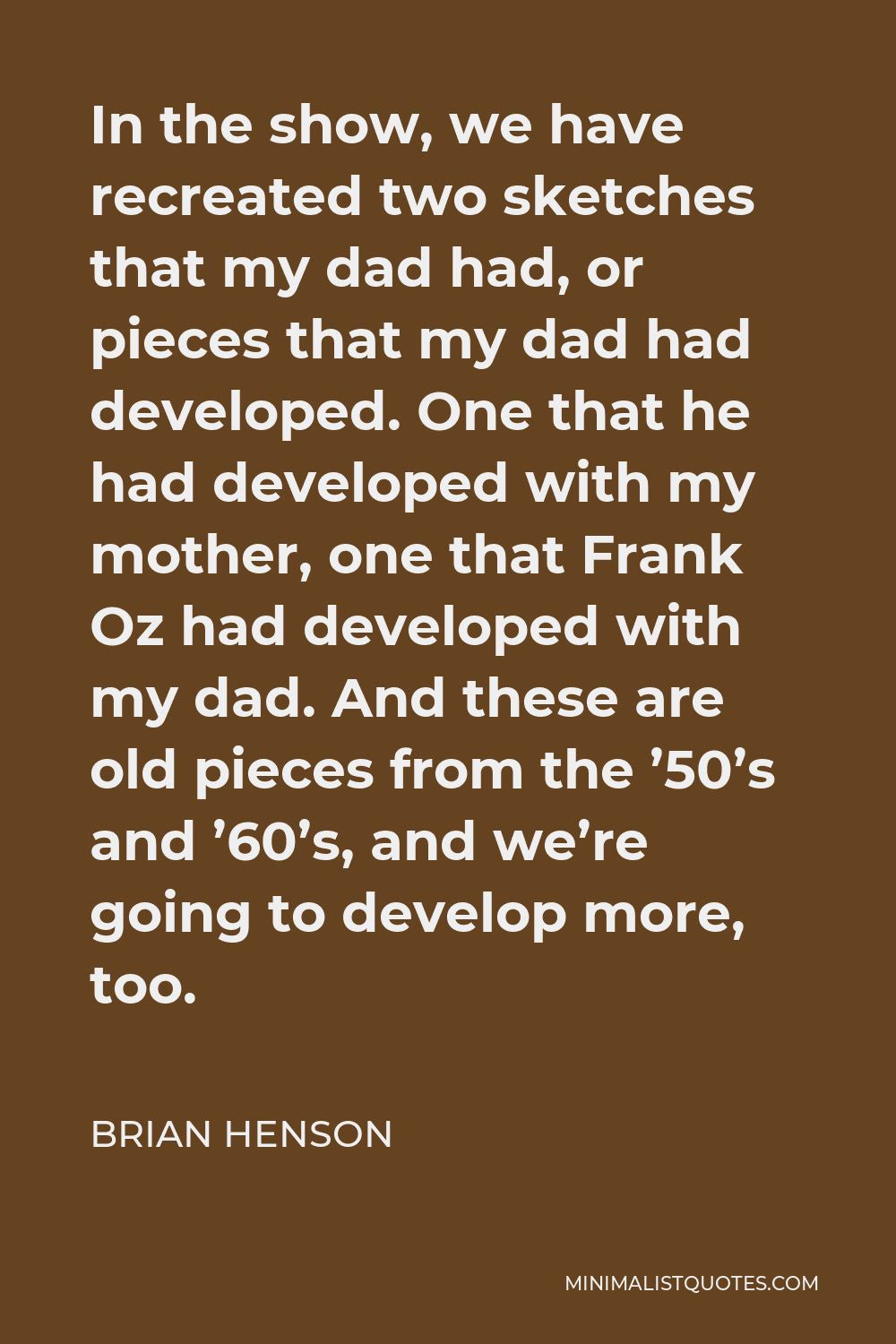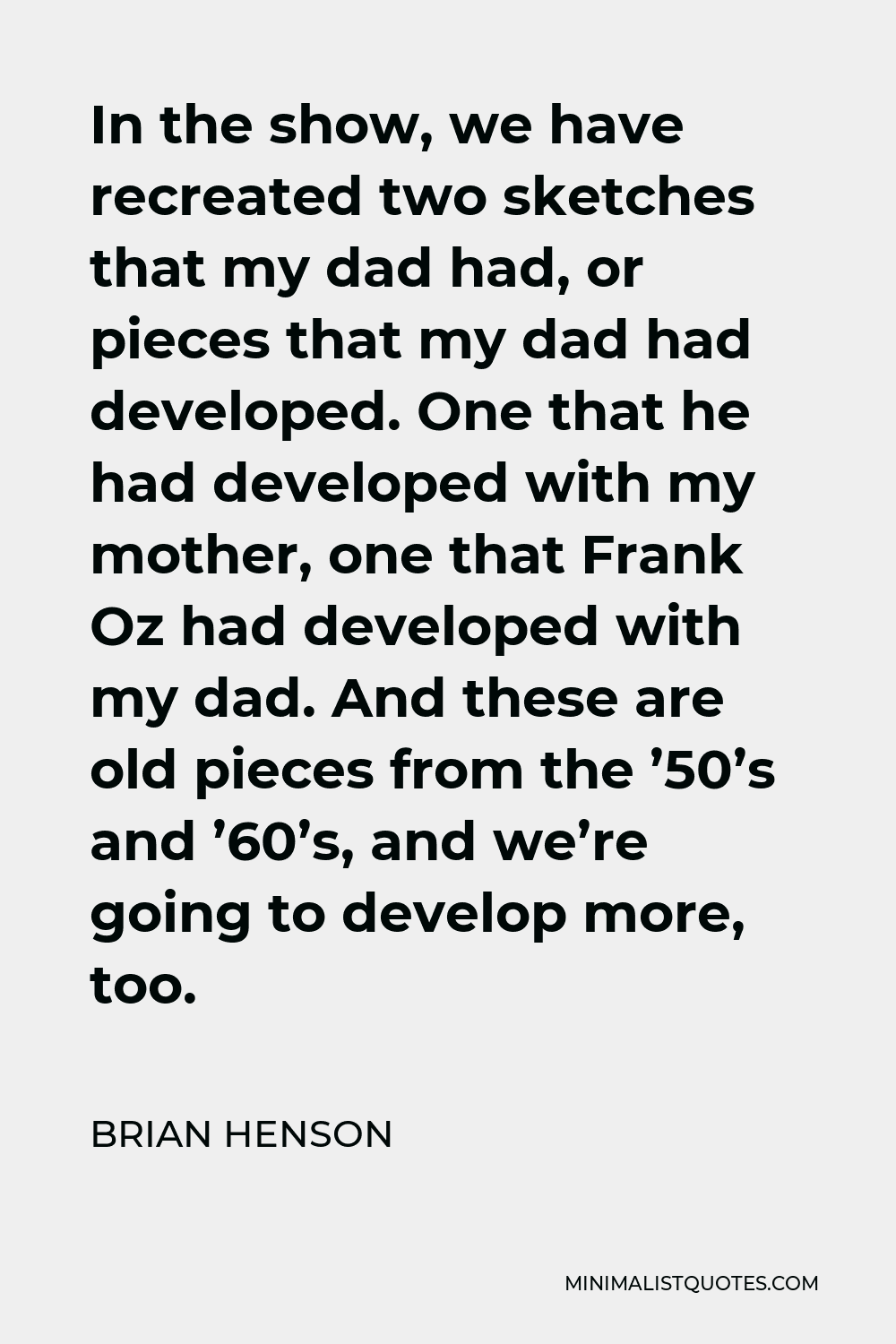I always very much enjoyed arts and it was so central in my family, my mother was also an art teacher, as well as founding the Henson Company with my dad, there was a lot of art going on in our household.
BRIAN HENSONIn the show, we have recreated two sketches that my dad had, or pieces that my dad had developed. One that he had developed with my mother, one that Frank Oz had developed with my dad. And these are old pieces from the ’50’s and ’60’s, and we’re going to develop more, too.
More Brian Henson Quotes
-





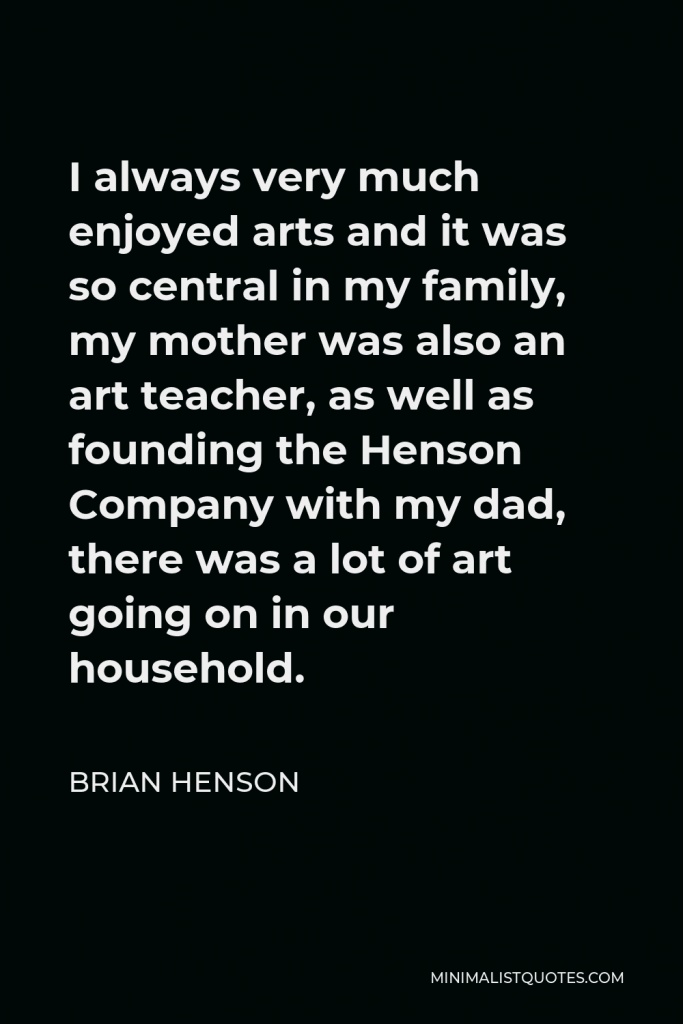

-





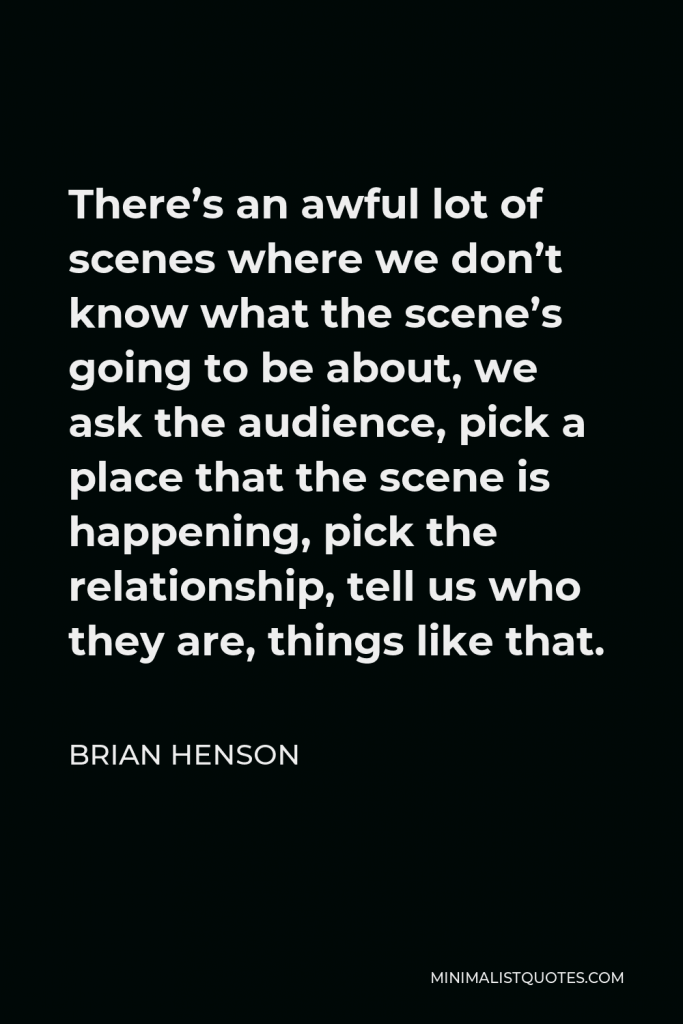

There’s an awful lot of scenes where we don’t know what the scene’s going to be about, we ask the audience, pick a place that the scene is happening, pick the relationship, tell us who they are, things like that.
BRIAN HENSON -





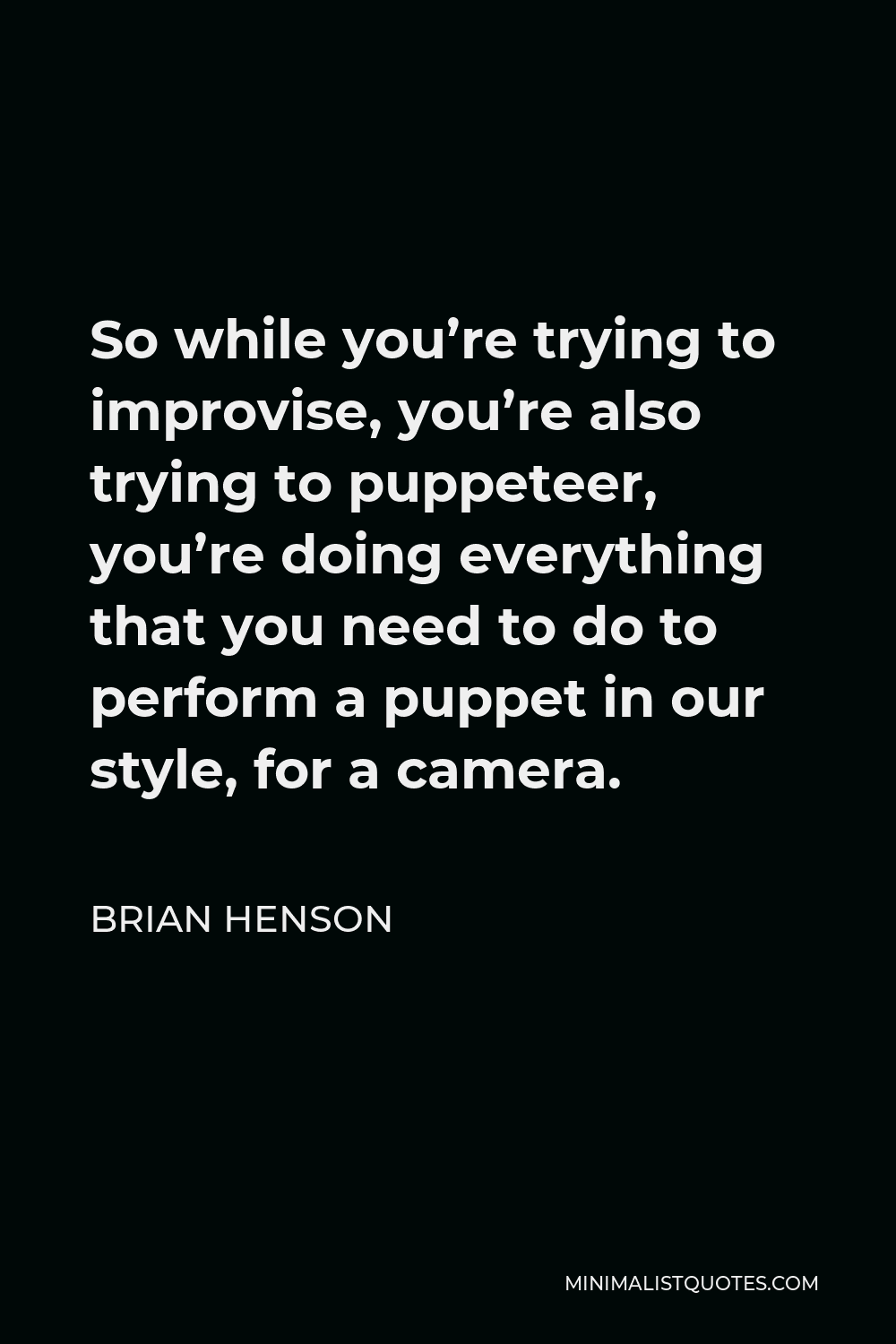
So while you’re trying to improvise, you’re also trying to puppeteer, you’re doing everything that you need to do to perform a puppet in our style, for a camera.
BRIAN HENSON -





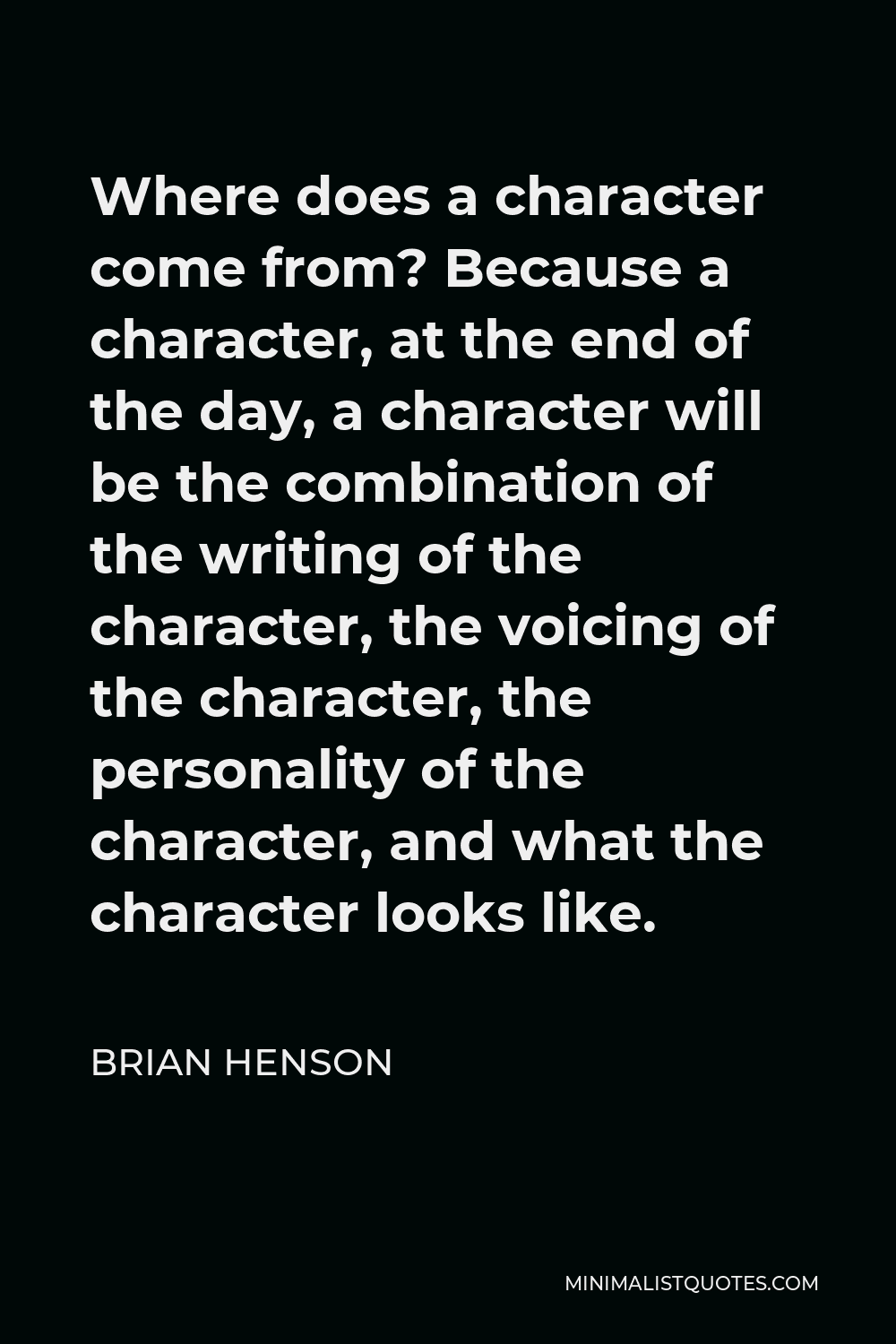
Where does a character come from? Because a character, at the end of the day, a character will be the combination of the writing of the character, the voicing of the character, the personality of the character, and what the character looks like.
BRIAN HENSON -





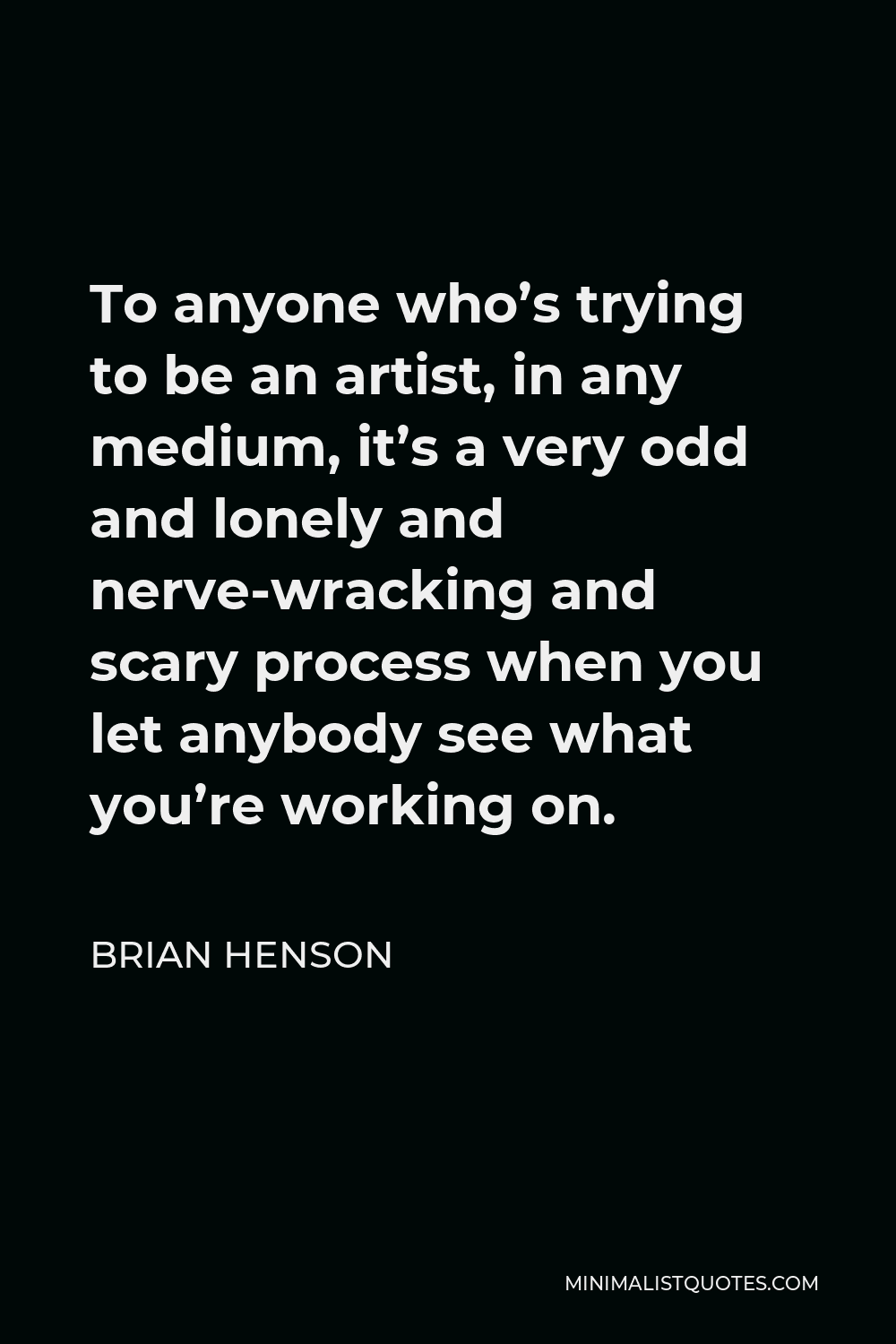
To anyone who’s trying to be an artist, in any medium, it’s a very odd and lonely and nerve-wracking and scary process when you let anybody see what you’re working on.
BRIAN HENSON -





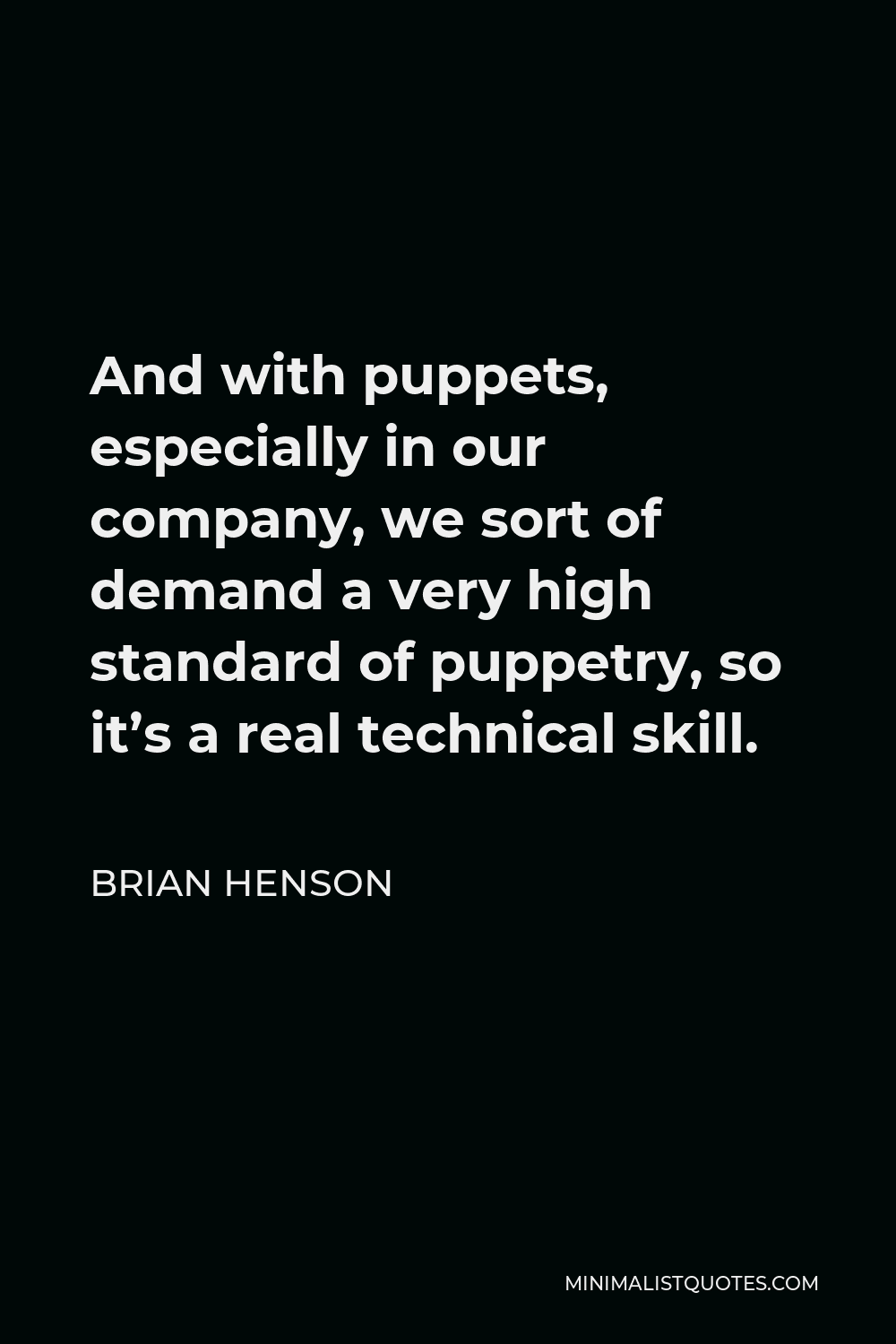
And with puppets, especially in our company, we sort of demand a very high standard of puppetry, so it’s a real technical skill.
BRIAN HENSON -





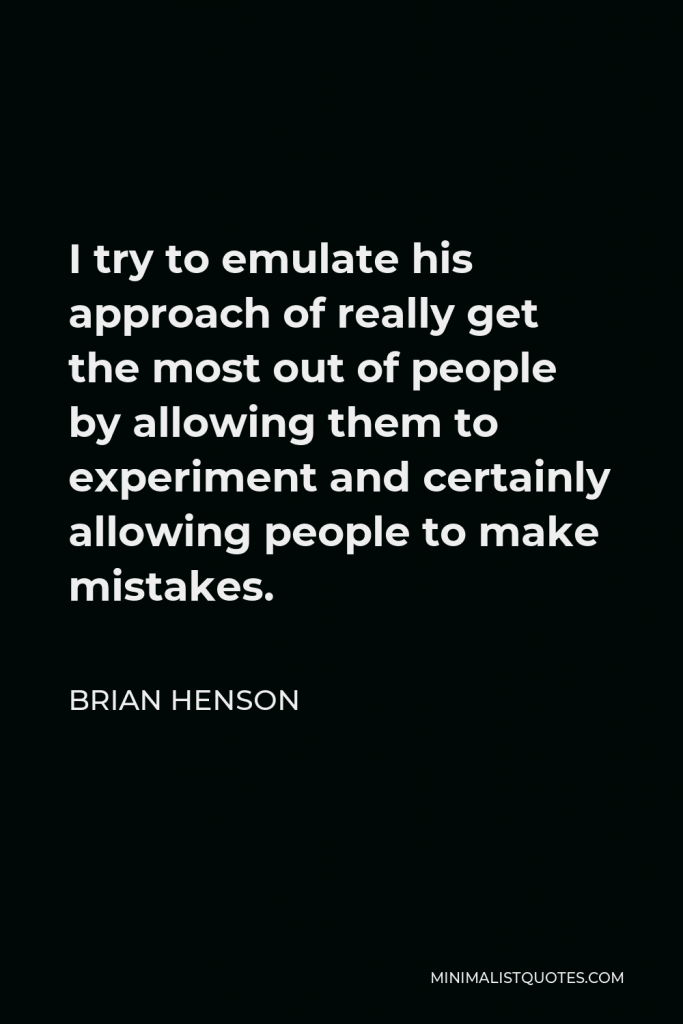

I try to emulate his approach of really get the most out of people by allowing them to experiment and certainly allowing people to make mistakes.
BRIAN HENSON -





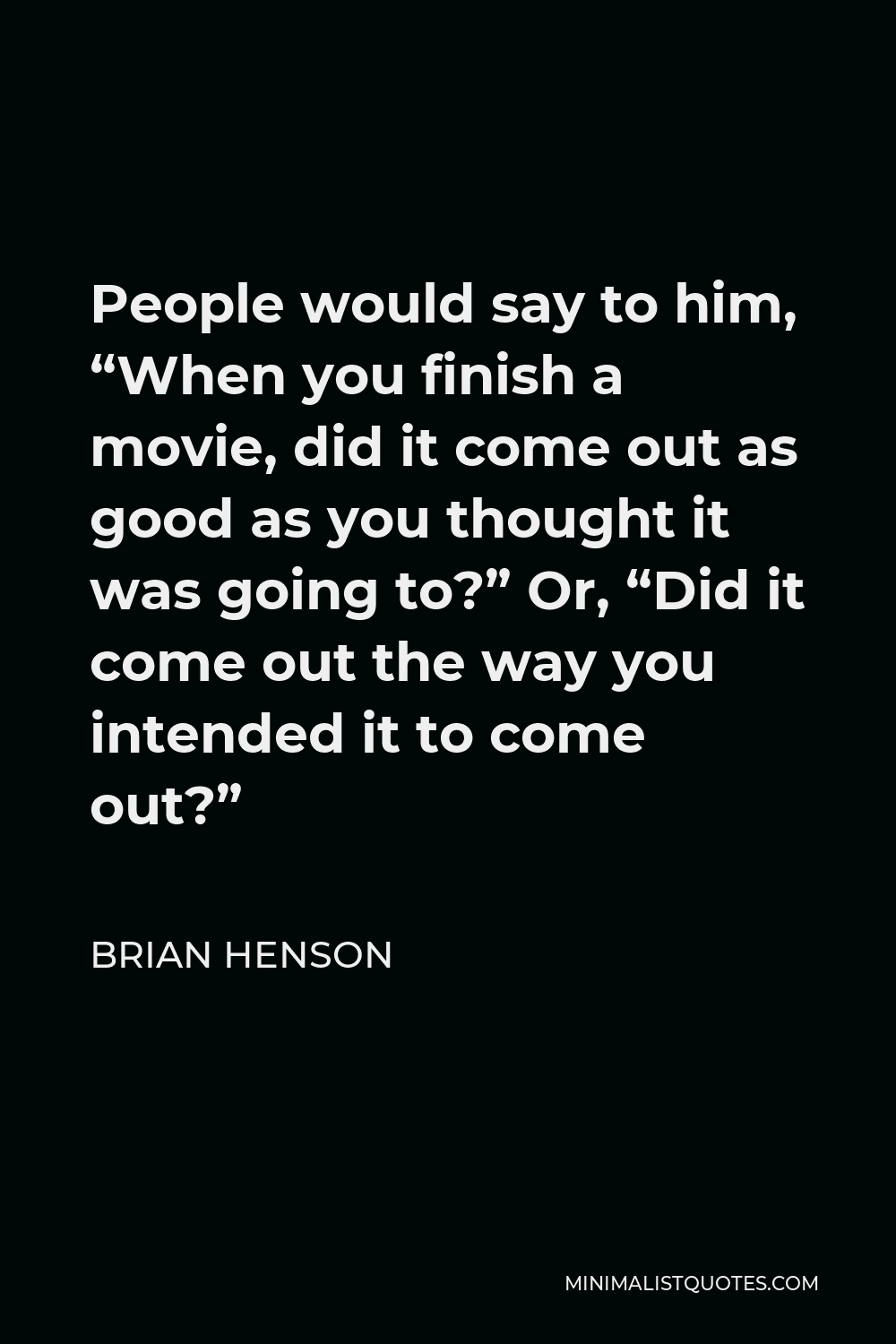
People would say to him, “When you finish a movie, did it come out as good as you thought it was going to?” Or, “Did it come out the way you intended it to come out?”
BRIAN HENSON -





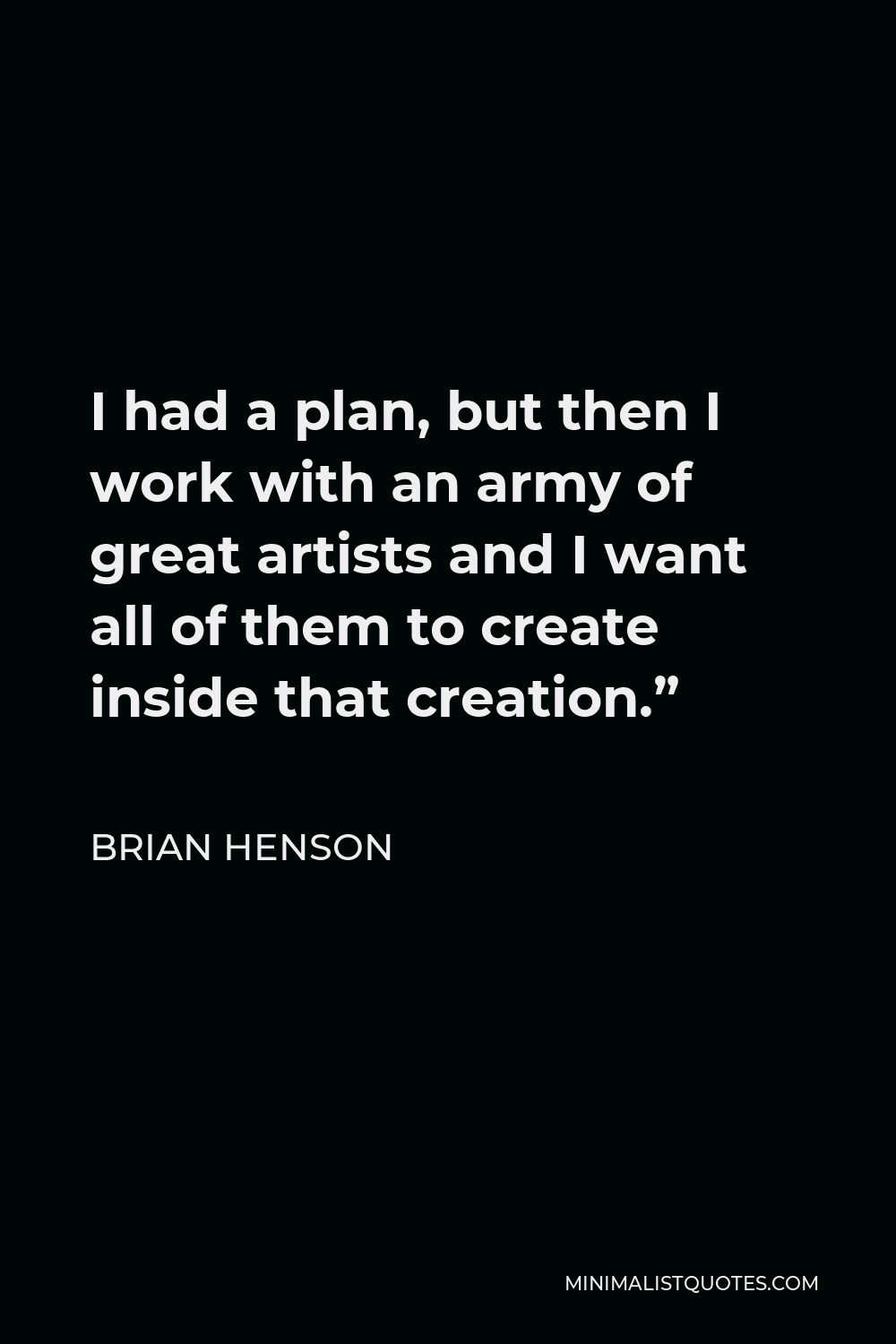
I had a plan, but then I work with an army of great artists and I want all of them to create inside that creation.”
BRIAN HENSON -





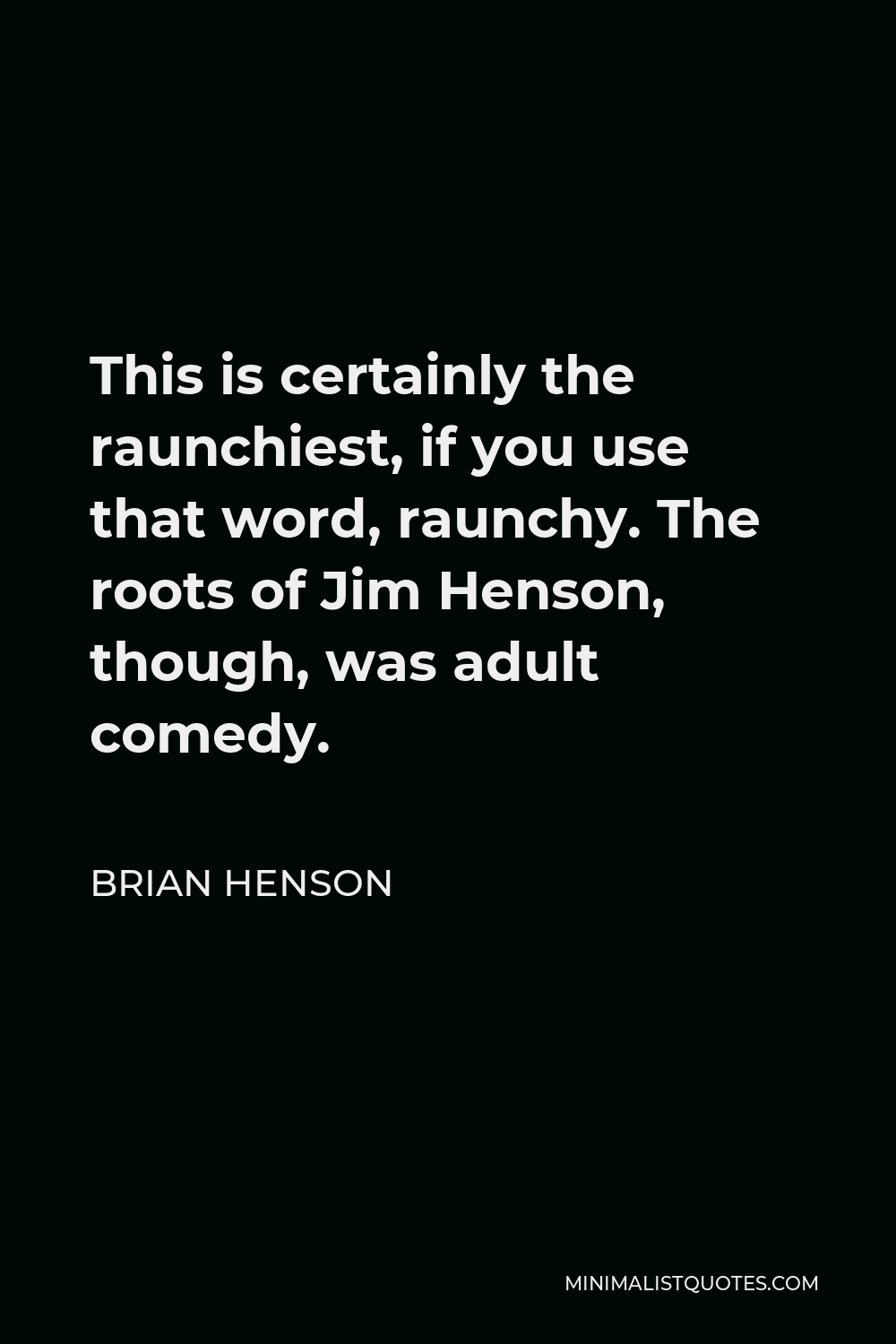
This is certainly the raunchiest, if you use that word, raunchy. The roots of Jim Henson, though, was adult comedy.
BRIAN HENSON -





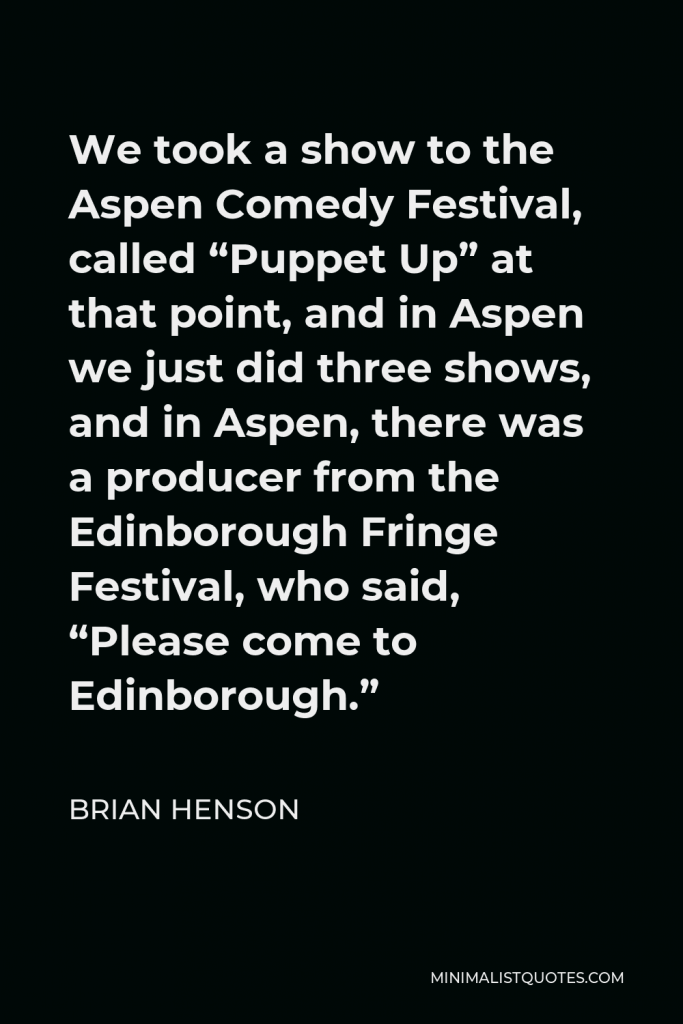

We took a show to the Aspen Comedy Festival, called “Puppet Up” at that point, and in Aspen we just did three shows, and in Aspen, there was a producer from the Edinborough Fringe Festival, who said, “Please come to Edinborough.”
BRIAN HENSON -





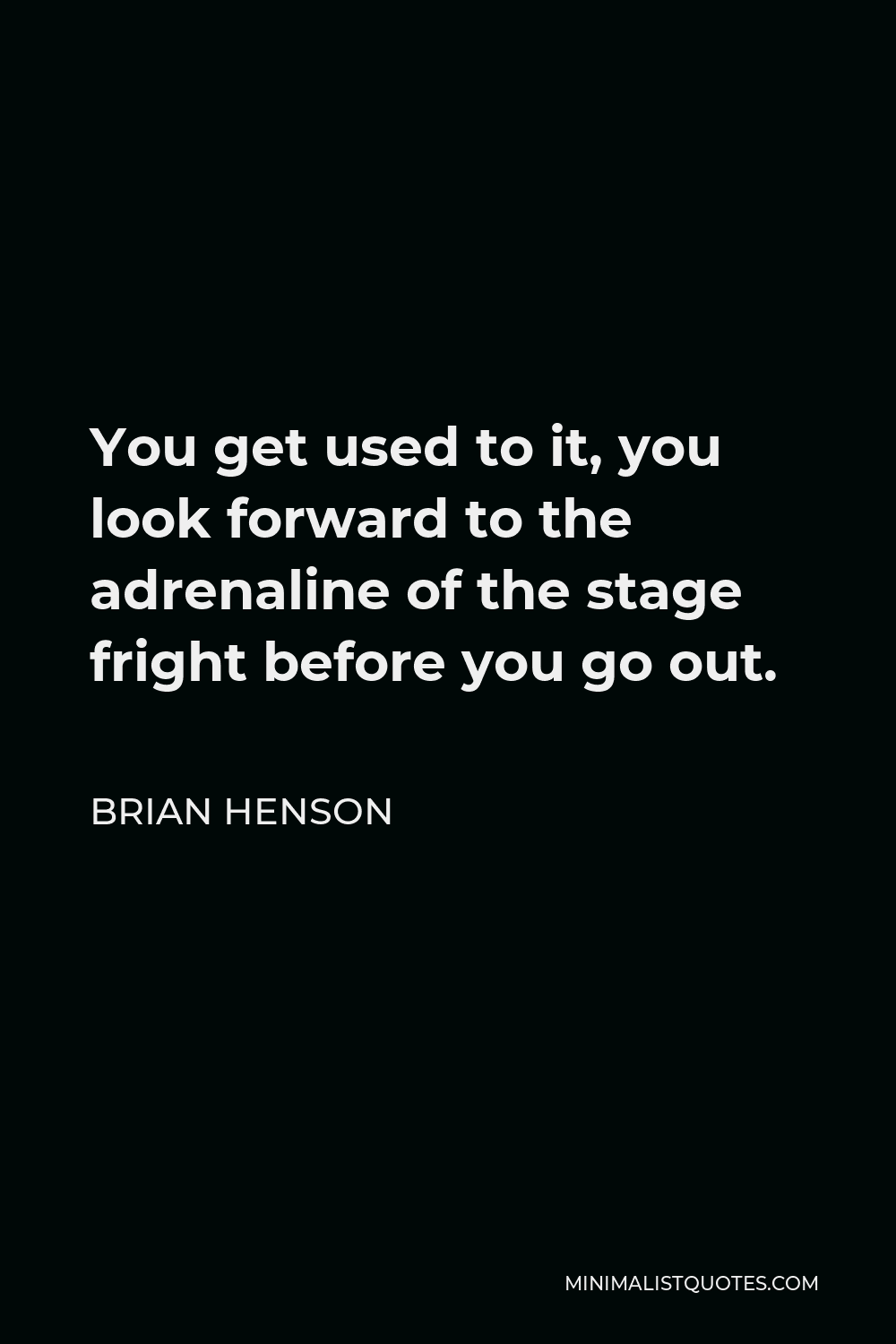
You get used to it, you look forward to the adrenaline of the stage fright before you go out.
BRIAN HENSON -





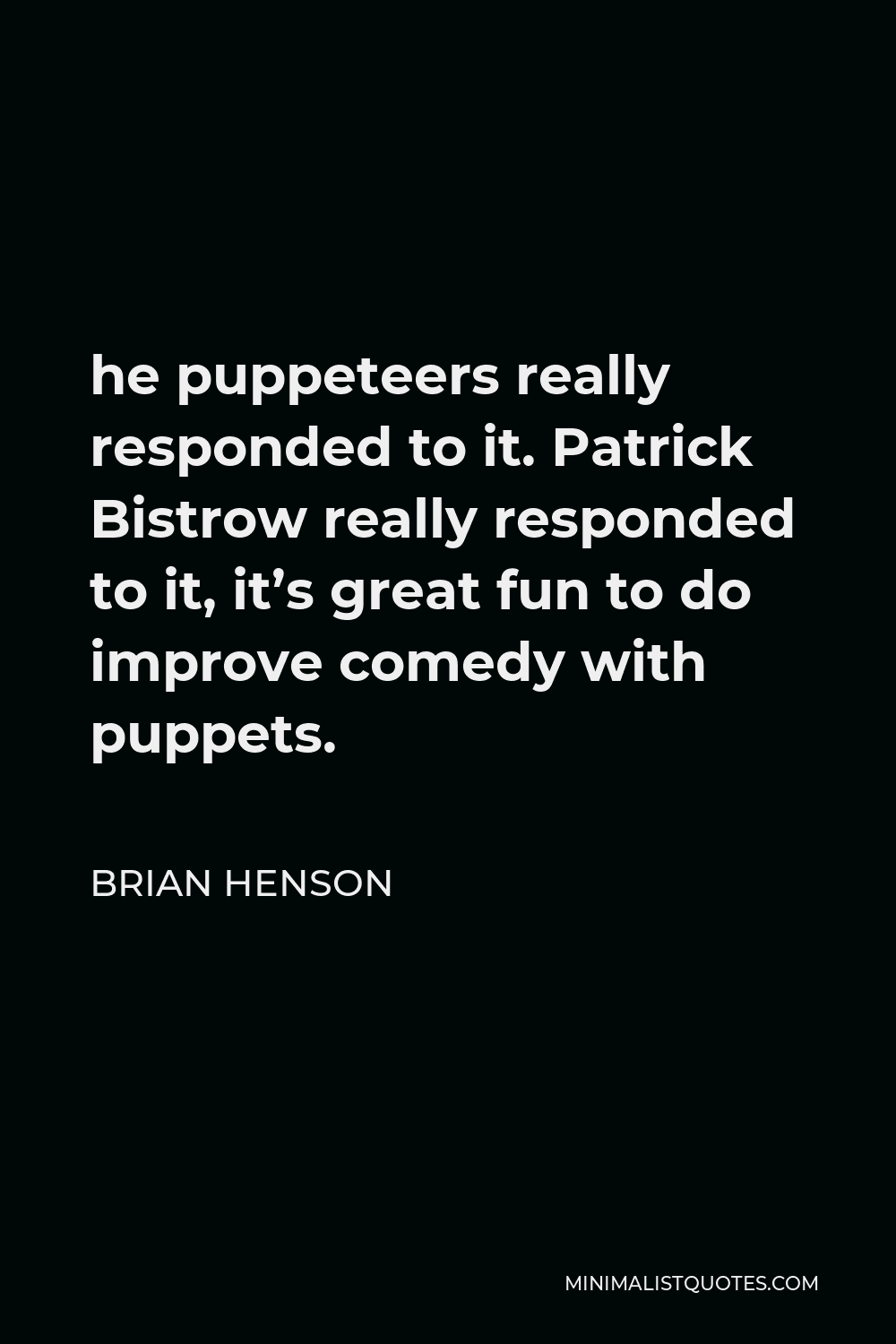
he puppeteers really responded to it. Patrick Bistrow really responded to it, it’s great fun to do improve comedy with puppets.
BRIAN HENSON -





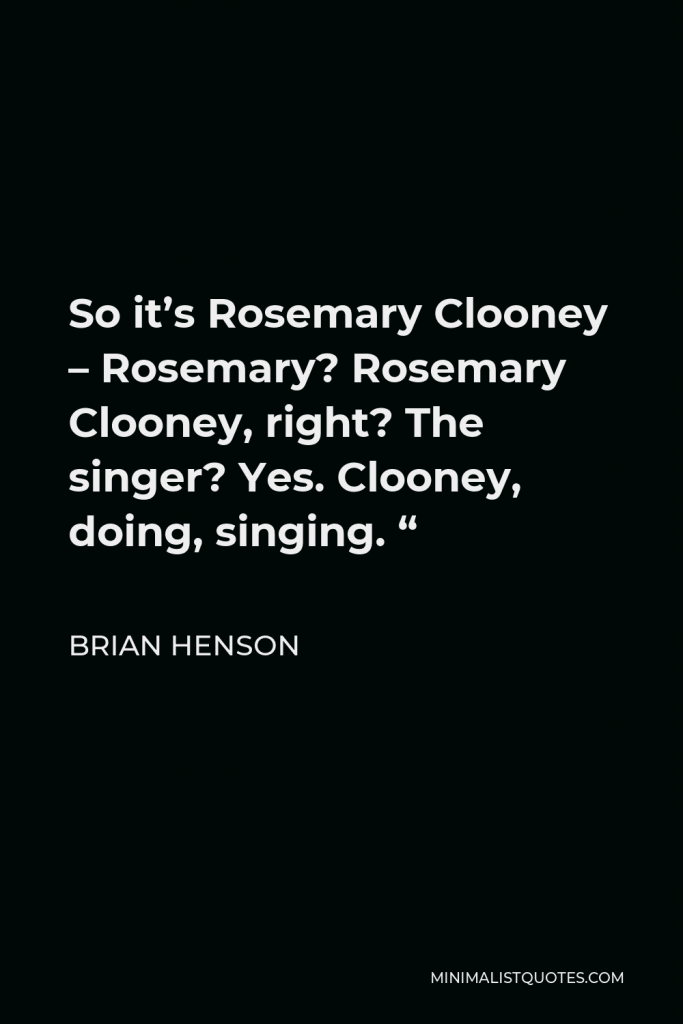

So it’s Rosemary Clooney – Rosemary? Rosemary Clooney, right? The singer? Yes. Clooney, doing, singing. “
BRIAN HENSON -





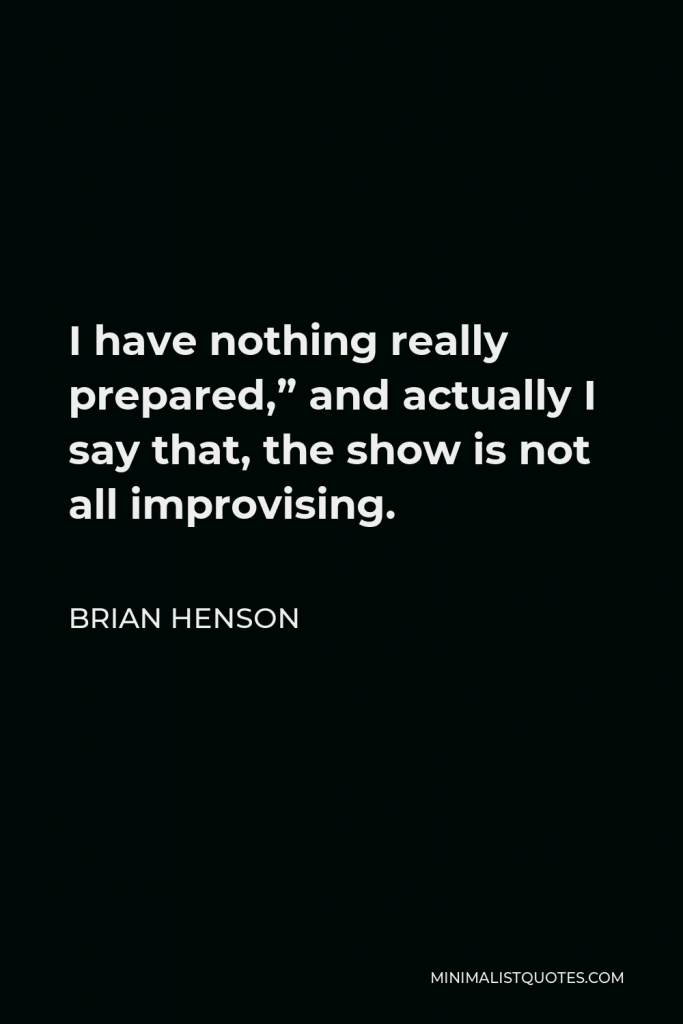

I have nothing really prepared,” and actually I say that, the show is not all improvising.
BRIAN HENSON -





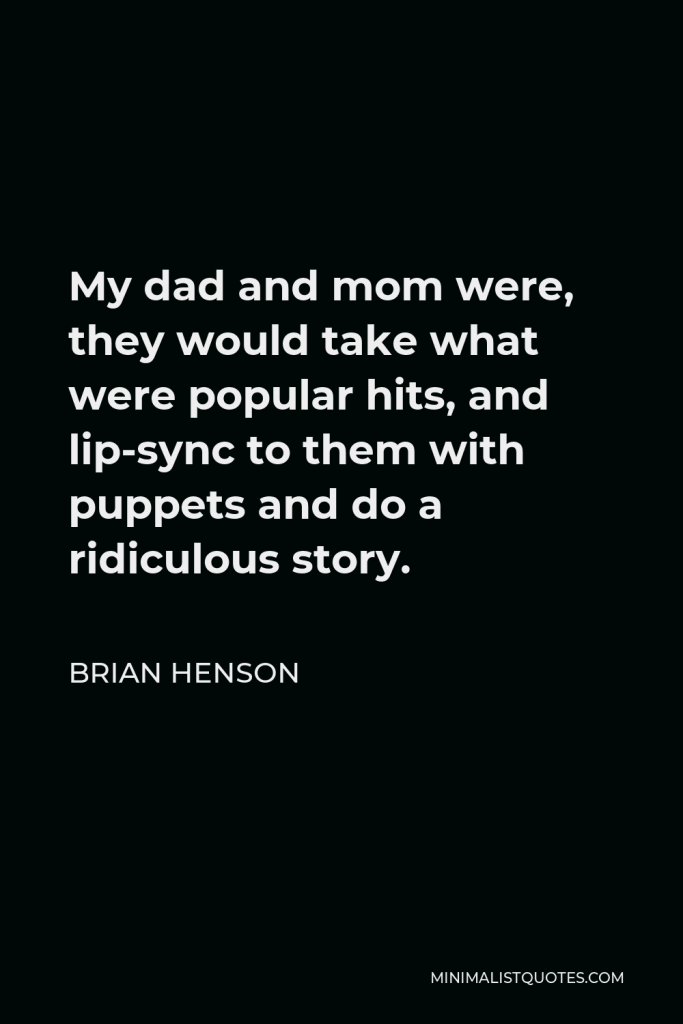

My dad and mom were, they would take what were popular hits, and lip-sync to them with puppets and do a ridiculous story.
BRIAN HENSON
